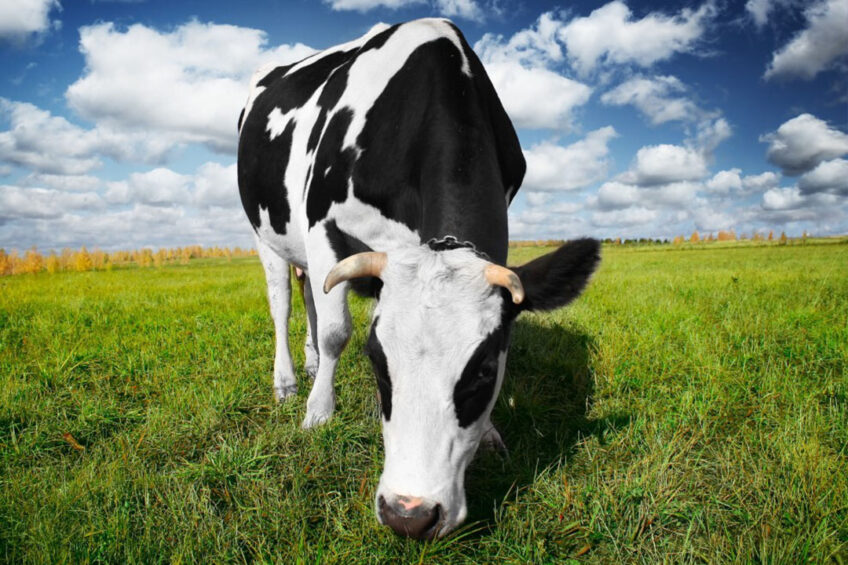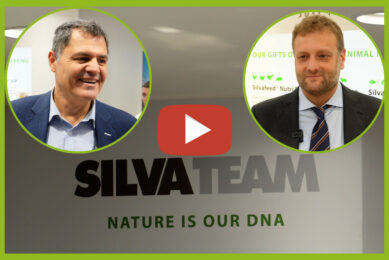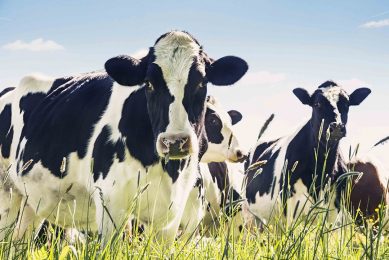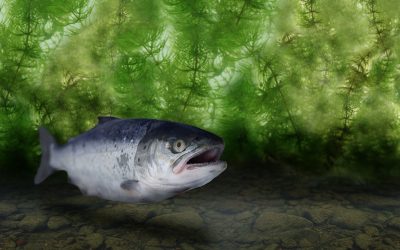A natural step to shrink GHG emissions from livestock

The last COP 26 hosted in Glasgow highlighted a global acceptance of the need to limit climate change, secure net-zero by mid-century and keep the target of 1.5°C within reach. Nevertheless, no countries have, as yet, set any legally binding targets with specific reference to livestock, preferring to keep flexibility in mind as to how to reach their targets.
This approach is common to Europe, the US and South America, especially Argentina and Brazil, 2 of the largest beef and animal feed producing nations worldwide.
The call to act
But the call to act is rising by the day. With the global population set to reach an estimated 10 billion by 2050, action on climate change urges the livestock industry to improve its sustainability goals in reducing greenhouse gas (GHG) emissions. While there is an argument to say that livestock is the tip of the iceberg when it comes to GHGs, ruminants are nevertheless major contributors to the agricultural sector’s emissions and, according to the FAO, account for almost 6% of the global anthropogenic GHG emissions. Moreover, cattle’s environmental impact has reached the mainstream thanks to compelling media campaigns and several environmental documentaries.
Strategies to reduce methane production
Finding strategies that reduce enteric methane production is of vital importance nowadays for the future of the whole sector, also in terms of safety of the food we eat. As a matter of fact, there are numerous firms operating in the meat and milk industries striving to do their share to reduce pollutant emissions in the atmosphere generated by their own businesses.
The first answer must come from the first step of the chain, but the feed industry is finding it hard to address this high-impact issue with solutions that are natural-based, cost-efficient and easy to include in a dietary strategy.
A natural solution to leave smaller hoofprints
A large body of research papers and scientific reviews have focused on assessing multiple ingredients to lower the gases harmful to the environment. Starting from this baseline, Silvateam has invested, during the last 5 years, resources in the development of feed additives able to mitigate ruminants’ greenhouse-effect gas emissions in terms of both methane and of nitrous oxide (N2O), the impact of which is, respectively, 28 and 265 times more harmful than carbon dioxide.
Silvateam has always invested in the search for cutting-edge animal nutrition solutions, promoting the transition towards natural, eco-friendly ingredients. Tannins, saponins and polyphenols are the main natural extracts chosen to increase livestock’s production efficiency, effectively replace antibiotics and improve animal welfare.
Natural feed additives such as bioactive plant extracts are primarily used to increase animal productivity or improve gut health, yet a better understanding of these natural compounds and their effects on the rumen has lead Silvateam to the formulation of Silvafeed BX, an innovative feed additive perfectly blended to mitigate methane enteric emissions in ruminants.
Tannins and saponins
The product is a blend of tannins (from chestnut and quebracho) and saponins, which can improve nutrient use efficiency in ruminants and act synergistically as anti-methanogenic agents. Tannins are soluble, polyphenolic compounds widely found in the plant kingdom and contribute to the plant defence system.
The methane mitigation mechanisms of tannins are likely due to a combination of factors, including a decrease in H2 production or direct inhibition of methanogens. With regards to saponins, known as natural surfactants, their capacity to reduce protozoal communities in the rumen, which have been symbiotically associated with methanogenic archaea, could explain a lower production of methane.
A potential reduction of methane of up to 30%
By lessening the production of methane, a process that takes energy, various studies have shown that feed utilisation is increased. It is good news for farmers, as this has a direct correlation to increased carcass weight.
Attempting to put a single figure on the methane reduction capabilities of the feed additive is almost impossible. Variability in breed, diet and dosage all play a part, but the results of all the laboratory tests and farm case studies confirm that the use of Silvafeed BX potentially reduces ruminants’ enteric production of methane by up to 30%.
Moreover, thanks to the co-benefits from its tannin/saponin-based components, such as improved protein supply plus a shift from urine to faecal excretion of nitrogen, Silvafeed BX reduces the risk of N2O emissions, another highly potent GHG.
A path grounded in science
The above-mentioned data are the result of research projects carried out internationally and vary according to the kind of product, dosage, type of animal, diet and usage time.
The assessment of Silvafeed BX, from the beginning of 2021 to the ongoing and future trials (both in vitro and in vivo), has seen many fruitful collaborations with several universities and institutions, namely CSIC (Spanish Research Council) of Granada and the University of Zaragoza in Spain, the University of Bologna in Italy, INTA in Argentina, and Instituto de Zootecnia of São Paulo, as well as UC Davis in California, the Colorado State University and Clemson University (South Carolina), the Georgia University and the Lincoln University in New Zealand.
Large-scale trials
The most engaging and large-scale trials are now taking place in Brazil. In 2021, Silvateam signed a 5-year research agreement with the School of Zootechnics in São Paulo and with JBS, the world’s leading animal protein processor. The goal of the project was to develop new technologies aimed at improving manufacturing efficiency and the animals’ welfare while lowering methane emissions in the atmosphere. The data collected so far is very interesting, especially in light of the fact that, currently, just in Brazil, approximately 30% of cattle use our natural extracts. Therefore, millions of animals have already lowered their emissions with a significantly beneficial effect on climate.
Silvateam has also been recently granted a Carbon Trust opinion validating that Silvafeed bioactive compounds can reduce methane emissions in ruminant livestock by up to 30%.
A holistic approach to ensure food safety
The use of Silvafeed plant extracts enhances the quality of proteins and of animal fat, optimising the ratio between saturated and unsaturated fatty acids. Furthermore, they increase the level of conjugated linoleic acid in milk, a beneficial factor for human health.
The intensive farming system has modified the livestock’s diet, thus altering the intestinal and rumen microbiome. In the past, animals integrated their nutritional regimen with ingredients contained in leaves, berries, twigs, and seeds, naturally rich in active principles that favoured the development of a healthy microbiome and, therefore, able to promote the wellbeing of the animals and the quality of their productions. The introduction of tannins in the diet helps to guarantee the presence of those powerful natural antioxidants, necessary elements to restore the balance lost due to modern nutrition.
The benefits exerted by Silvafeed supplementation also include meat quality enhancement, greenhouse-effect emission reduction and, last but not least, animal welfare improvement. To safeguard farm animals’ health and wellbeing means to protect the whole food supply chain, with positive consequences for humans as well. Animal welfare, together with the elimination of antibiotics and the reduction of emissions, will be the parameters on which farmers should invest to successfully meet the demands of consumers and the market.






